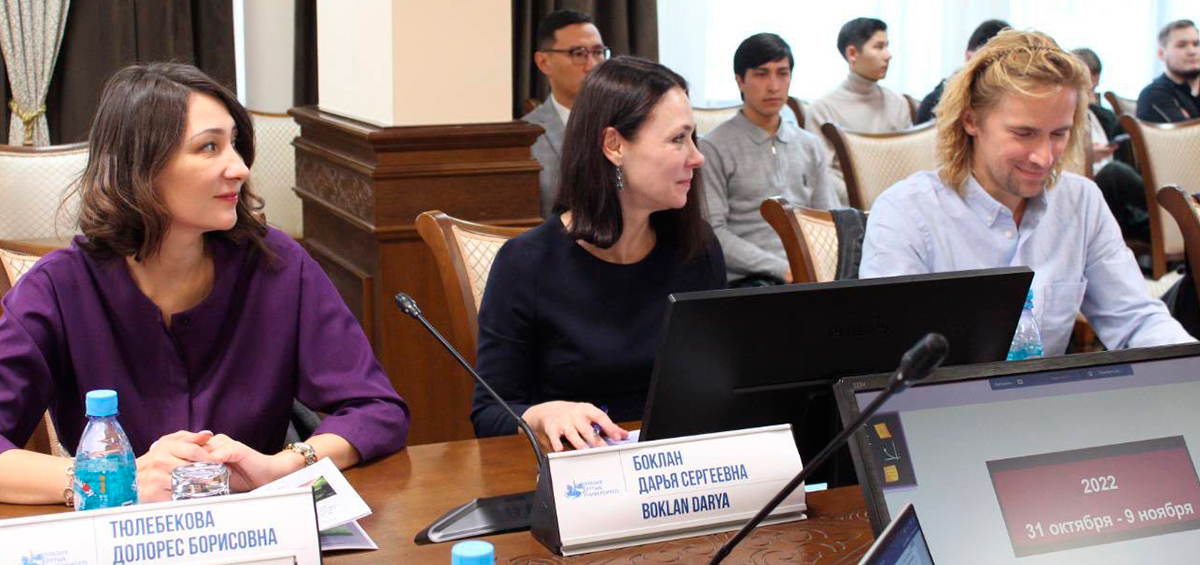In Astana, ENU the use of NCC for dispute resolution
14.11.2022
On November 10, the L.N. Gumilyov Eurasian National University hosted an international scientific and practical conference on the topic "Law, Ecology and sustainable Development: state and prospects" in Astana. The purpose of the conference was to discuss topical topics and various issues in the field of international law theory; to strengthen the practice–oriented approach of training specialists in the field of international law; as well as to exchange experience. The Conference is held on the anniversary of the adoption of a number of international acts that formed the basis of international legal protection of the environment:
The meeting was attended by candidates of Law and professors of the Peoples' Friendship University of Russia, representatives of the Office of Scientific and Technological Development and the Scientific and Technical Council at the International Center for Green Technologies and Investment Projects, the Department of International Law of the National Research University "Higher School of Economics" and many others. Economic Research Institute JSC was presented by Dolores Tyulebekova, Director of the World Economy Research Center, and an employee of the Secretariat of the National Contact Center (NCC) Aliya Mussina.  Tyulebekova considered the role of internationa.organizations in dispute resolution on the example of the Organization for Economic Cooperation and Development (OECD). She noted that the NCC is considering applications for violation of the provisions of the OECD Guidelines for Multinational Enterprises, including on environmental issues. The NCC is a unique mechanism in the settlement of disputes between multinational companies that have arisen between society. Of all the considered sponsors in the NCC, 23% relate to environmental issues. In addition, issues related to ecology in cross-border deposits, the WTO right to protect sovereignty over natural resources, and the international legal personality of nature were touched upon. In conclusion, the parties expressed gratitude and exchanged views on improving the environmental condition of the country, and also expressed interest in using such a mechanism as the NCC for dispute resolution. For reference: The OECD is an international economi.organization of developed countries, established in 1948 and recognizes the principles of representative democracy and a free market economy. The aim of the OECD is to implement a coordinated policy aimed at ensuring sustainable economic growth and improving the standard of living of member countries. 38 countries are members of the OECD. Kazakhstan has been cooperating with the OECD since 2008. The NCC is a collegial advisory body that makes decisions on the considered appeals for violation of the provisions The OECD Guidelines for Multinational Enterprises.
Views: 5098 |
|
||||||||||||||||||||||||||||||||||||||||||||||||||||||||||||||||||||||||||||||||||||||||||||||||






|